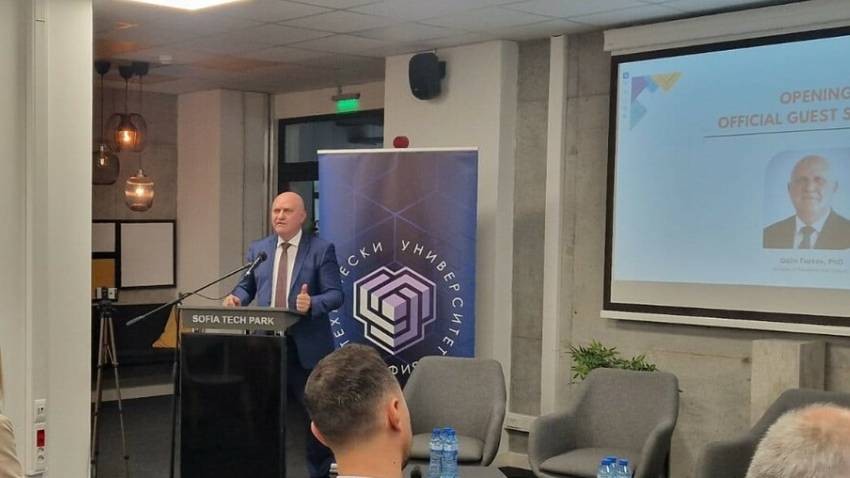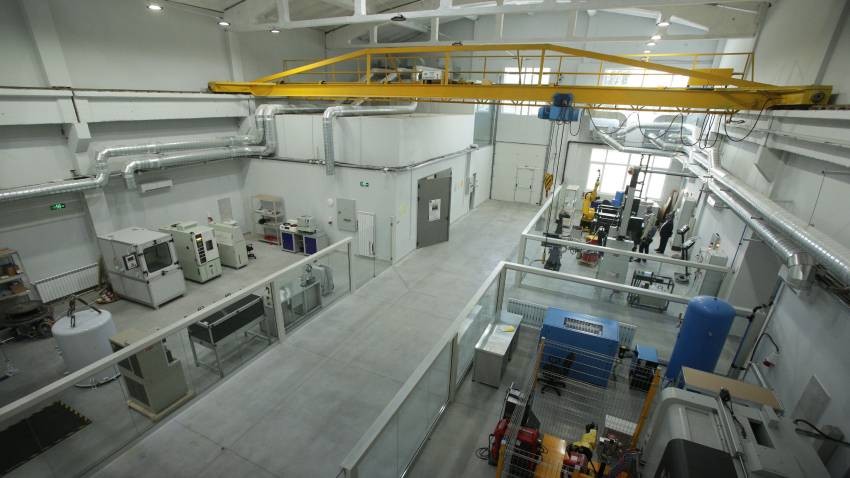There are more than 400 companies in Bulgaria operating in the sectors mechatronics, electronics and microelectronics, which are export-oriented, develop innovations and have a modern production, said Minister of Economy and Industry Bogdan Bogdanov at a forum in Sofia dedicated to microelectronics and mechatronics. The three sectors are traditional for the country, and there is a clear vision for the development of their capacities, he added.
According to Education Minister Galin Tsokov, electronics and mechatronics are spheres very appropriate for the upcoming introduction of dual education at universities. Bachelor's and master's degree programs of this kind are currently being developed and businesses are expected to offer projects in this sector. 
“Under the programme Science and Education for Smart Growth, these cutting-edge areas of modern engineering science are being developed in most of the 16 centres of competence and excellence in the country,” Minister Tsokov says. “Under the next operational programme, these centres are to connect and work with businesses for the launch of startups in the respective sphere, and the implementation of certain scientific research.”
Although they are in their 4th year at university, Anton and Alex are part of the high-tech industry. They are involved in the work of a Belgian company with 20 years of experience in microelectronics, semiconductors, chip design, applied in cars, but also in household appliances and sensors in buildings. They say there are other young people working for the company, including some they are at university with. 
“I knew someone at university who started work at an even younger age, and at one point I was able to join too. The work helps me a lot in my studies, because the job is in my own field of study” says Anton, and Alex adds: “I have been working for this company for a year. There were internship openings, at the moment I’m working on permanent contract.”
Simeon Kostadinov works for a high-tech company, writing software for microelectronic circuits.
“Businesses spare no money or effort to train students because they want to find the best,” he says. And as the most talented among them usually can’t wait to leave the country, the companies offer serious internships so as not to lose them. 
“What we do is specific and we can’t expect universities to train staff for us,” Simeon Kostadinov says further. “That is why we employ third and fourth year students as interns. Reality is what has prompted us to do that – on the one hand to fine-tune the company, and on the other to create a good environment for Bulgarian students and experts so they will do the job they enjoy, developing the microelectronic industry and bringing it up to world standards.”
As the electronics and microelectronics industry advances, engineering staff has been in huge demand, says Dimiktar Nikolov, lecturer at the Technical University. At the same time there is not enough interest in engineering degrees. But there is a ray of hope – the state has recently started reevaluating the importance of engineering technologies. 
“It has been assigning policies the results of which are yet to be seen in an increase in the number of students and the overall standard,” Dimitar Nikolov says. “Competition between Bulgarian universities and foreign companies is fierce, but that is as it should be so they can select the best on the labour market. We have been able to retain many of them because, first, we are a Bulgarian company, and second, because of the conditions we offer. In Bulgaria, you can work for most companies in our sphere, and the companies our university has partnered up with. Our initiatives and our policies can compete with the initiatives and policies in Western Europe.”
According to Minister of Economy and Industry Bogdan Bogdanov, businesses, the public sector and the educational establishments need to look in the same direction so as to guarantee the economic development of the country.
Interview by Dobromir Videv, Horizont channel, BNR
Text by Diana Tsankova
Translated and posted by Milena Daynova
Photos: Freepik.com, BTA
Perperikon - the ancient Thracian city near Kardzhali, made it to the top 10 of the world's must-see sites, according to a ranking by the Guardian newspaper. The site is listed alongside Neolithic structures in Spain and France, ancient Roman baths..
This year, the traditional Christmas trip with the Rhodope Narrow Gauge Railway will take place on December 22, Kristian Vaklinov, founder and chairman of the Rhodope Narrow-Gauge Railway Association, told the BNR-Blagoevgrad. Santa Claus and Snow..
The zoo in Stara Zagora has new residents – three female collared peccaries and a male tufted capuchin named Lucho. The animals arrived from the Sofia Zoo under a breeding loan agreement.The practice of zoos exchanging animals for breeding purposes..
The village of Zmeyovo near the town of Stara Zagora is celebrating today, December 21, its traditional Festival of Pelin Wine. According to an..
Each piece evokes warmth and nostalgia because each is handmade and unique. The silvery reflections on the glass baubles take us back to childhood, when..
The making of knitted products is a traditional craft that deserves a revival and a new life, believes Alexandrina Pandurska, known for her numerous..

+359 2 9336 661
